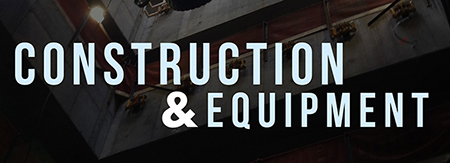|
Subscribe / Renew |
|
|
Contact Us |
|
| ► Subscribe to our Free Weekly Newsletter | |
| home | Welcome, sign in or click here to subscribe. | login |
Construction
| |
 |
April 24, 2014
New law protects contractor proposal information
Oles Morrison Rinker & Baker

Sherwood
|
Proposals on public works projects have been the subject of public records requests since the Public Records Act was enacted in 1972.
Prior to the 2013-14 legislative session, contractors on public works projects faced an uphill battle in their efforts to keep these proposals — and the proprietary information contained in them — from being disclosed to the public and inevitably, the hands of competitors.
This was especially true on public works design-build procurements under RCW 39.10. Those procurements often include a two-phase competition in which responses to a request for qualifications are evaluated, a small number of finalists are chosen, and those finalists are then required to submit comprehensive proposals under the project’s request for proposals.
Those proposals often include significant information that contractors keep confidential, including financial information, approaches to pricing the work, overhead structure, markups, and logistical and scheduling schemes developed over years in business.
However, in the recently completed legislative session, House Bill 2555 was introduced, passed unanimously by both houses, and signed into law by Gov. Inslee on March 13. That bill exempts RCW 39.10 design-build proposals from disclosure under the Public Records Act (PRA) until after award or cancellation of the public works contract.
Under the PRA, if an agency receives a request for records and intends to produce them to a requestor, any party named in the records or to whom the records specifically pertain, may seek a judicial determination that the records are exempt from disclosure. Typically, a party seeking to exempt records from disclosure will first file a lawsuit seeking to enjoin the agency from disclosing, and immediately seek a temporary restraining order preventing the agency from releasing the records for 14 days.
Then, generally within two weeks, the court will hold a hearing on the issuance of a permanent injunction, preventing the agency from releasing such records until such time as a full trial on the issues is conducted.
Under the PRA, one seeking to enjoin production of requested records must show that the requested documents fall within the scope of a PRA exemption, including that disclosure of the records would clearly not be in the public interest, and that disclosure would substantially and irreparably damage a person or vital government function.
Trade secrets
Prior to HB 2555, a contractor seeking to prevent disclosure of its design-build proposal would generally assert that one of two exemptions applied.
First, contractors typically sought exemption under the Uniform Trade Secrets Act (UTSA), arguing that the information contained in the proposal constituted a trade secret under the act. To fall within the trade secret exemption, information must be novel (i.e., not readily ascertainable from another source) and the information must derive independent economic value from being and remaining confidential.
Second, a contractor would frequently argue that its proposal contained valuable formulae, designs, drawings, etc., which are specifically exempted under provisions of the PRA.
On their face, these exemptions appeared to protect most, if not all, of the information contained in a design-build proposal. However, as Robbins, Geller, Rudman & Dowd LLP v. State, a recent decision from the Court of Appeals Division 2 highlights, the application of either exception presents its own challenges.
With regard to what qualifies as a trade secret under the UTSA, courts are hesitant to find that information is “novel” if that information is ascertainable from another source. Particularly with respect to contractors’ proposals, our courts have been hesitant to find that the information they contain is unique where the methods, designs, etc. are similar among competitors’ proposals for the project.
Our courts are particularly unwilling to accept conclusory declarations from an interested party that its information is novel, and instead have come to require concrete, specific examples of why the information is novel or unique.
With respect to the “public harm” requirement under the PRA, courts rarely find such harm. For example, the argument that disclosing a contractor’s proposal would have a chilling effect on the state procurement process has not been a compelling one. Courts have rejected that notion, noting that when less than all of the award finalists seek to prevent disclosure, that lack of unanimity undermines the “chilling effect” argument.
Landscape change
HB 2555 clearly changes the landscape with regard to protecting design-build finalist proposals. That law provides a clear, straightforward exemption for the proposals submitted by design-build finalists, holding the proposals confidential “until the notification of the highest scoring finalist is made … or the selection process is terminated.”
HB 2555 will become effective June 12.
The effect of HB 2555 is to protect design-build finalists’ proposals from public disclosure under the PRA, at least until the procurement process has ended. Whether contractors can thereafter protect proprietary information in their proposals would likely still require an injunction, as public agencies, faced with steep fines for violating the PRA, are now tending to err on the side of caution when facing a request for the disclosure of public records.
While HB 2555 is not a golden ticket for all contractor/PRA issues, it certainly is a step in the right direction, and serves to make the design-build procurement method a more attractive one, likely increasing potential proposers’ confidence in one of the state’s alternate procurement methods, and the quality and efficiency of such methods.
Ashley Sherwood is a lawyer with Oles Morrison Rinker & Baker LLP in Seattle. Her practice focuses on construction law and federal contracting, including the representation of contractors and project owners in construction disputes.
Other Stories:
- ABC Awards • Eagle of Excellence • Mixed-Use Construction
- Survey: Skanska USA
- Survey: Andersen Construction
- Survey: BNBuilders
- Survey: J.M. Riley Co.
- Financing equipment? Know these 7 things first
- Builder’s risk insurance can be a subcontractor’s best friend
- Worker shortage ‘coming at us like a freight train’
- Reduce financial risk by tracking construction costs
- What can public agencies learn from Bertha’s journey?
- Survey: Mortenson Construction
- Survey: Venture General Contracting
- ABC Awards • Mechanical Construction
- ABC Awards • Demolition
- ABC Awards • Institutional
- ABC Awards • Community/Public Service
- ABC Awards • Commercial Construction
- ABC Awards • Electrical & Communications
- ABC Awards • Specialty Construction
- ABC Awards • Tenant Improvement
- Survey: Abbott Construction
- Unique demolition project goes underground


